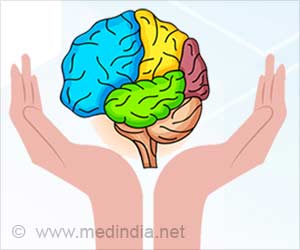Simple blood test measuring the neurofilament light protein (NFL) concentration in the blood can tell whether there is accelerating nerve cell damage in the brain of Alzheimer's patients.

TOP INSIGHT
Simple blood test can detect the risk of Alzheimer's. Measuring the NFL concentration in the blood can help draw more reliable conclusions from the results and could make things easier for future drug development.
Read More..
Very sensitive methods have been developed in recent years to measure the presence of certain substances in the blood that can indicate damage in the brain and neurological diseases such as Parkinson’s, multiple sclerosis (MS) and Alzheimer’s. Neurofilament light protein (NFL) is one such substance.
"Standard methods for indicating nerve cell damage involve measuring the patient’s level of certain substances using a lumbar puncture or examining a brain MRI. These methods are complicated, take time and are costly. Measuring NFL in the blood can be cheaper and is also easier for the patient", explains Niklas Mattsson, a researcher at Lund University and physician at Skª]ne University Hospital, who led the study.
When nerve cells in the brain are damaged or die, NFL protein leaks into the cerebrospinal fluid and onwards into the blood. It was previously known that the levels of NFL are elevated among people with neurodegenerative diseases, but there has been a lack of long-term studies.
"We discovered that the NFL concentration increases over time in Alzheimer’s disease and that these elevated levels also are in line with the accumulated brain damage, which we can measure using lumbar punctures or magnetic resonance imaging," says Niklas Mattsson.
"A recently published small-scale German-American study presented similar results on familial Alzheimer’s disease, a very rare form of the disease that is strongly related to heredity. Taken together, these studies indicate that NFL in the blood can be used to measure damage to brain cells in various forms of Alzheimer’s disease", says Niklas Mattsson.
Measurements of the NFL concentration in the blood could indicate if the medicine is actually affecting the loss of nerve cells when an optimal dosage of the drug has been reached or if another drug should be tried.
"Within drug development, it can be valuable to detect the effects of the trialed drug at an early stage and to be able to test on people who do not yet have full-blown Alzheimer’s," says Niklas Mattsson and continues;
"In previous drug trials, there has been considerable uncertainty about the effects of the drugs. There are several reasons for this. For example, some of the patients involved probably did not have Alzheimer’s disease. In other cases, it was unclear if the drug had been introduced too late in the course of the disease. Measuring the NFL concentration in the blood could make things easier for future drug development, both through following the effects of the drug and by including test subjects who display markers of nerve cell deterioration. This approach will enable more reliable conclusions to be drawn from the results".
Niklas Mattsson emphasizes the importance of continuing to examine how sensitive the measurement of NFL in the blood is as a marker for Alzheimer’s disease and what can be expected from longitudinal changes. The effects of promising drugs also need to be confirmed in new drug studies.
However, he believes that the method is not far from becoming a standard clinical procedure.
"Preparatory work is ongoing at Sahlgrenska University Hospital in Gothenburg to make this method available as a clinical procedure in the near future. Physicians can then use the method to measure damage to nerve cells in Alzheimer’s disease and other brain disorders through a simple blood test", Niklas Mattsson concludes.
Source-Eurekalert
 MEDINDIA
MEDINDIA




 Email
Email










